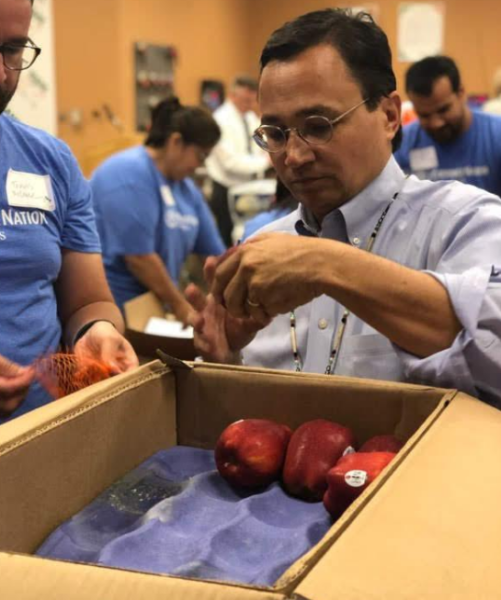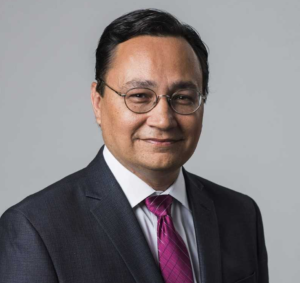
- Details
- By Chuck Hoskin Jr
Guest Opinion
As we face this ongoing crisis, I feel fortunate to be part of our strong Cherokee Nation team.
Every day I am surrounded by people making a difference. Our frontline health care workers and first responders, our caregivers and social services providers, our Cherokee Nation Businesses leaders, members of the Council of the Cherokee Nation, my cabinet members, the Deputy Principal Chief, and all of our other staff and volunteers are performing critical work.
Cherokee Nation’s health system is not only still functioning, but we are finding new and innovative ways to continue providing health care in challenging circumstances. We are not only working hard; we are working smarter. We have implemented new check-in procedures to keep patients and staff as safe as possible, and our health providers are expanding their use of telemedicine.
 Cherokee Nation Principal Chief Chuck Hoskin, Jr.
Cherokee Nation Principal Chief Chuck Hoskin, Jr.
I recently signed an agreement to bring rapid COVID-19 testing to the Cherokee Nation health system. This testing allows us to quickly determine who is infected with coronavirus in order to prioritize their care. When armed with accurate information, we can better protect our communities. We are developing new drive-through testing sites in Tahlequah, Muskogee and Vinita. Additional ventilators are also on their way to Cherokee Nation.
We are partnering with others around the globe to bring in new ideas to care for COVID-19 patients. Recently, our Cherokee Nation marshals, Health Services team, Chief of Staff and Deputy Chief used a 3-D printer, diving gear and expertise from Italy to create a new style of BiPap machine. These machines may prove to be lifesaving equipment at our hospital, and testing is underway.
I am amazed at how innovative our team continues to be, working tirelessly to take on this physically and emotionally challenging crisis. All of this gives us reason to be hopeful and proud.
However, as Chief of the Cherokee Nation, it is also my job to be honest about difficult realities. I have committed from the beginning to approach this pandemic guided by both medical science and compassion. That’s why I must warn you that, according to every national, state and local indicator, the next few weeks will be the most painful we have experienced in this crisis.
The number of positive tests will increase. The suffering by our friends and neighbors across Cherokee Nation will increase. The number of deaths —of people you love, people I love, fellow Cherokees across our Nation —will increase. I have already lost a dear friend and colleague from this horrible virus. We are all vulnerable to this disease, and we will all share in the economic suffering ahead of us in some way. COVID-19 will have a lasting effect on the world, including the Cherokee Nation.
I tell you all of this for one purpose: I want you to be prepared, be brave, be smart and do all you can to keep the numbers of infections and deaths as low as possible. It is up to each of us to do our part to stop the spread of this virus and speed our path to recovery. For those who do not need to be on the front lines, I implore you to stay home and stay safe.
To my fellow Cherokees, it is OK to mourn our losses and brace for grim days ahead. It is OK to find joy in those who recover. It is also OK to feel hope and pride when our Nation finds innovative ways to respond to COVID-19.
I ask that you pour that joy, that hope and especially those fears into a determined effort to keep each other safe, to look out for one another. Now, more than ever before, we are all in this together.
Chuck Hoskin, Jr. is the principal chief of the Cherokee Nation.
More Stories Like This
Native News Weekly (August 25, 2024): D.C. BriefsUS Presidents in Their Own Words Concerning American Indians
Native News Weekly (December 14, 2025): D.C. Briefs
Wounded Knee Massacre Site Protection Bill Passes Congress
Two Murdered on Colville Indian Reservation
Help us defend tribal sovereignty.
At Native News Online, our mission is rooted in telling the stories that strengthen sovereignty and uplift Indigenous voices — not just at year’s end, but every single day.
Because of your generosity last year, we were able to keep our reporters on the ground in tribal communities, at national gatherings and in the halls of Congress — covering the issues that matter most to Indian Country: sovereignty, culture, education, health and economic opportunity.
That support sustained us through a tough year in 2025. Now, as we look to the year ahead, we need your help right now to ensure warrior journalism remains strong — reporting that defends tribal sovereignty, amplifies Native truth, and holds power accountable.
 The stakes couldn't be higher. Your support keeps Native voices heard, Native stories told and Native sovereignty defended.
The stakes couldn't be higher. Your support keeps Native voices heard, Native stories told and Native sovereignty defended.
Stand with Warrior Journalism today.
Levi Rickert (Potawatomi), Editor & Publisher
